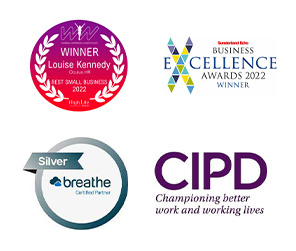Many of us are no strangers to a little tipple after work.
A glass of wine with colleagues to put the world to rights.
An informal brainstorming session over a few beers.
Some all-important bonding and team building away from the constraints and routine of being tied to a desk.
But as a leader, you no doubt fully recognise that alcohol can turn into a serious problem in your workplace if it’s not carefully managed.
What would you do if an employee turned up for their shift looking worse for wear?
What if rowdy behaviour in the pub brought your business into disrepute?
And what exactly is the difference between your staff enjoying a couple of drinks, and your business being faced with a deeper and more serious problem?
Situation’s I have been involved with, have been;
A works Christmas party – HR taking responsibility for the night. One member of staff wandered off into the hotel and started to urinate against a hotel bedroom door with guests staying in the room….as you can imagine the hotel and the guest were not happy!!!!
Another works party, in a restaurant, the employees becoming louder and lounder – complaints are received from other tables and the manager of the restaurant the company employees (all 50 of them) were asked to leave the premises!!!
A travelling sales guy, admitted he had a problem with alcohol, he was drinking in excess of 4 bottles of wine a night. He was not based on site so we would not see him on a morning but he was getting into his company vehicle each day to travel to meet company customers. If he had not informed the business how would we have known????
An employee that is believed to be under the influence at work whilst driving company vehicles or FLT’s, if you don’t have a testing kits in place it becomes your reasonable belief they are under the influence, to ask your employee to leave the premises for the day.
What you really need to understand here is this…
You have legal obligations under The Health and Safety at work Act 1974, The Transport and Works Act 1992 and The Misuse of Drugs Act 1971.
You must have policies that ensure that issues are handled fairly and consistently.
And your managers should have sufficient training and capability to deal with workers who need help.
It should be noted here that taking a hard-line approach rarely serves anyone well. You probably don’t need us to tell you that dragging an employee with a serious problem into your office and giving them a telling off isn’t going to fix anything.
As a responsible employer, you’ve got a duty of care to make sure that you support your staff through difficult times… Which is a solid reason why many employers now view alcohol and drug problems as illnesses that need to be treated through rehabilitation practices.
Of course, drugs can be a different kettle of fish entirely. They’re less socially acceptable, and can have a much more damaging impact on a person’s life than enjoying a few drinks with workmates now and again.
Remember too that if you have a team of managers, their role is important in all of this. Can they spot potential problems? Do they have the confidence and ability to tackle them? Do they know where to turn to for expert help if things start to escalate?
If you’re just reading this guide out of interest, and you don’t have an issue like this in your workplace at the moment? Then that’s great, but you must recognise that you need to be prepared. Firefighting problems like this is always going to be seriously difficult, for everyone involved.
But if you’re dipping into this advice because you’re worried about a current situation regarding alcohol or drugs in your business? Then getting some tailored advice from a professional is highly advisable.
This is complex stuff, and you don’t have to manage it on your own.
Get in touch today to arrange a no-obligation and confidential discussion around how we might be able to work together to deal with alcohol and drug problems at work.
